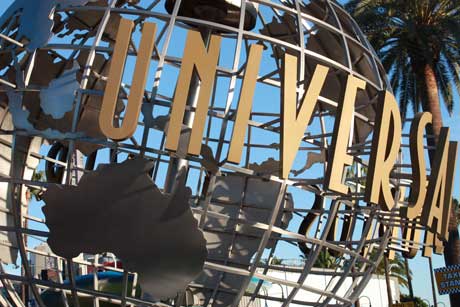Coroneos takes iiTrial heat

update Internet Industry Association (IIA) chief Peter Coroneos faced heated questions in Federal Court yesterday over a "knockout blow" the IIA had planned for an increasingly prolific copyright movement.

Universal Studios logo, Universal City, Los Angeles, California
(Credit: Liam Tung)
As the Federal Court battle between iiNet and the Australian Federation Against Copyright Theft (which represents Hollywood's largest movie studios) hits its final 48 hours, Justice Cowdroy allowed Coroneos to take the stand to be cross-examined over the IIA's submission as a so-called friend of the court.
Coroneos was asked by AFACT's legal counsel, Tony Bannon SC, about the IIA's "disconnect" group, established in 2005. Coroneos said the group, which included Telstra, Optus, iiNet, Internode and others, was formed to counter the growing number of copyright infringement notices sent by AFACT and fellow copyright advocate, Music Industry Piracy Investigations (MIPI).
In May 2008, Coroneos had aired a plan in an email to members that would deliver a "knockout blow" to the copyright lobbyists. The deed would be executed via a proposed ISP code which would limit, under the banner of privacy, the period ISPs could retain IP addresses — AFACT's and MIPI's starting point for building its case in the current proceedings. If the ISP did not retain records of IP addresses, there would be no opportunity for the applicants to cross reference their evidence.
Raising a later email written by Coroneos, Bannon said the IIA chief had written the end result would be that AFACT "would have an insurmountable practical problem in seeking to persuade ISPs to enforce their terms of agreement".
"No," replied Coroneos, "not the terms of the agreement, but the policy push for ISPs to implement the practice of terminating alleged infringing accounts. So it was in response to the policy proposals from MIPI and AFACT. It was only in response to those policy proposals that we were examining this opportunity." Coroneos said he didn't recall who hatched the plan, but speculated that it coudl have been former director of the IIA and general counsel for Verizon Business, Mary Jane Salier.
Will IIA's submission be allowed?At the close of yesterday's proceedings, Justice Cowdroy said he would make a decision on whether to allow the IIA's submission on Thursday, when court resumed.
On the witness stand, Coroneos defended the legitimacy of the IIA's submission because it offered a "different perspective" on the laws contested in the hearing and because it viewed the battle as a "test case" which may lead to proceedings against its other ISP members.
"Perspective adds nothing new," said Bannon, reminding Justice Cowdroy that for the IIA's submission to be acceptable under the amicus curiae rule, it had to offer something new to those already made by iiNet.
The IIA's legal counsel, Clayton Utz barrister, Stephen Burley SC, said the IIA wanted to address the question of the role of AFACT's breach notifications and whether that in conjunction with an ISP's inaction amounted to authorisation of copyright infringement.
"That's of great significance to the industry," said Burley, adding that the notifications, if construed this way, would be "unilateral determinations" but were just allegations.
Countering the argument's novelty in the proceedings, Bannon retorted: "I assure you Mr Burley that point has been made."